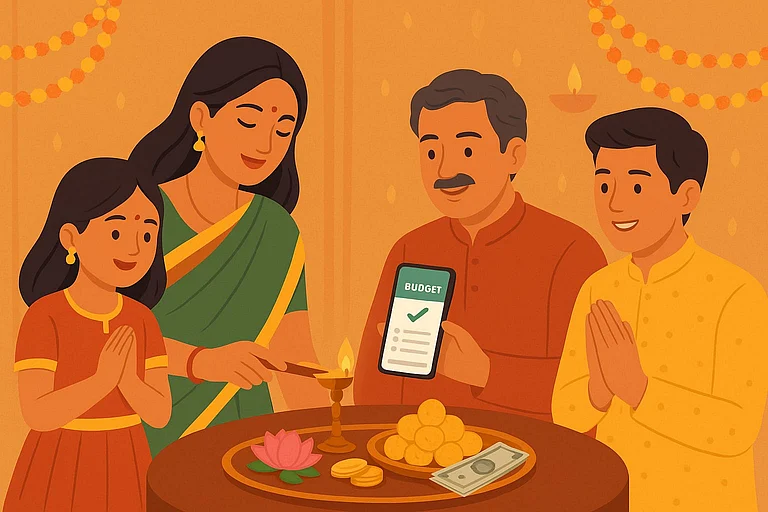Celebrate Dussehra by defeating debt through disciplined financial planning.
Reduce unnecessary spending, consolidate loans, and build emergency savings.
Seek expert advice and plan ahead for debt-free future.
Dussehra Financial Victory: How To Become Debt-Free This Festival
Here’s what you need to know to achieve financial victory and stay debt-free this Dussehra
During Dussehra, as families come together to celebrate with gifts, travel and festive preparations, spending often rises. Even though the celebration is joyful, if spending is not carefully controlled, it may also force some people into debt. Just as we celebrate Dussehra to mark Lord Ram’s triumph over Ravana, the festival also reminds us that, with careful planning and wise financial decisions, achieving debt-free victories is possible.
Tips to Become Debt-Free This Dusshera
1. Understand Your Debt Clearly
Begin by listing all debts, including credit cards, personal loans, and EMIs. Also, include the minimum monthly payments, interest rates, and outstanding balances. You can choose which one to settle first after you get a complete picture. Knowing how much you owe and to whom is essential for managing your finances and creating an efficient repayment plan.
2. Make a Repayment Plan
Create a repayment plan that fits your monthly income and essential expenses. You could focus on smaller debts first to gain momentum or high-interest loans to reduce interest costs. Allocate a specific amount every month and remain consistent. When required, you can make modifications to the plan. By staying disciplined, you can reduce stress and be closer to debt freedom by adhering to a set payback plan.
3. Cut Back on Non-Essential Spending
Review your daily spending and identify areas to reduce without affecting necessary expenses. Try to spend less on non-essential things, like dining out, subscriptions, or impulse buys. Pay off your debt with the money you save. Even small and consistent efforts can add up over time, which can help you reduce what you owe and feel more in control of your finances.
4. Consider Consolidating High-Interest Loans
Consolidating several high-interest loans or credit card balances into one lower-interest loan can streamline payments and save money. Make sure it helps by looking at fees and interest rates for debt consolidation. It can ease the burden of managing several accounts, simplify repayments, and give you more time to concentrate on paying off your debts.
5. Keep a Small Emergency Fund
While working on debt repayment, try to save a small emergency fund. Even a modest buffer can cover unforeseen expenses like medical emergencies, car repairs or household issues. In an emergency, having this safety net lowers the chance of taking out more loans, which could throw your repayment plan off course.
6. Ask for Professional Help if Needed
If your debts feel overwhelming, consider seeking help from a financial advisor or credit counsellor. If necessary, they can help you make decisions and create a reasonable repayment plan. Seeking expert assistance is a wise move that will help you take charge, get perspective and make sure you continue on your path to effectively and efficiently paying off debts.
7. Plan for Life After Debt
After you begin paying off debt, start making plans for a period after repayment. Establish attainable financial objectives such as retirement planning, investing or conserving money. Create sensible spending, saving and budgeting habits. By preparing ahead of time for life after debt, you can prevent reverting to old habits and experience long-term financial independence and stability free from the burden of future commitments.
